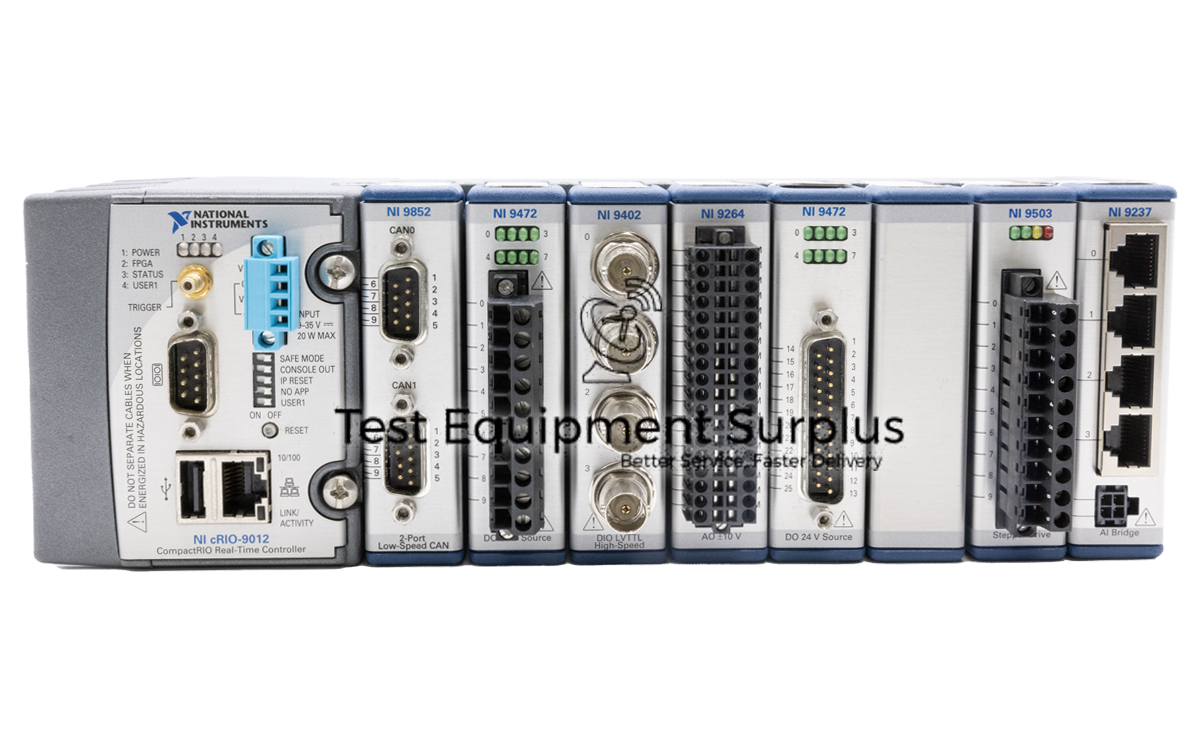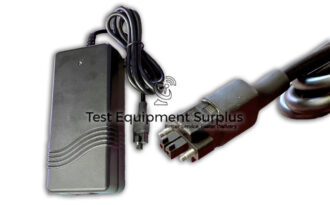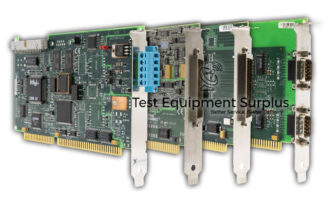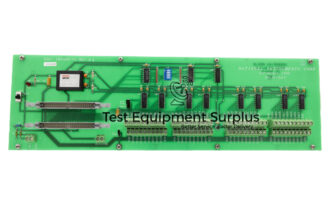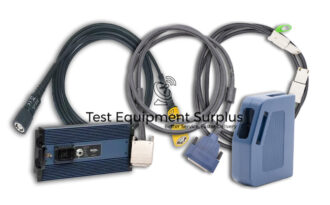Description
The National Instruments cRIO-9075 CompactRIO Controller, with Part Number 781715-01, is equipped with a 400 MHz CPU and a robust FPGA Spartan-6 LX 25 by Xilinx, which includes 24051 logic cells and 38 multipliers, along with 936 kb of RAM. This controller provides substantial internal storage of 256 MB and 128 MB of DRAM, ensuring efficient handling of complex processes and data.
Designed to accommodate four C Series I/O module slots, the cRIO-9075 allows for extensive connectivity and adaptability for various input and output options. It supports a multitude of communication protocols including IrDA, Serial Protocol, TCP/IP, Modbus/TCP, and UDP, facilitating diverse network configurations.
Built-in communication servers such as VISA, FTP, and HTTP are integrated within the device, ensuring seamless data exchange and remote management capabilities. The configuration of this controller is streamlined through the use of the Measurement & Automation Explorer (MAX) tool, making setup and maintenance straightforward.
With a compatible power supply of 24 W, 24 VDC, and a maximum power consumption of 15 watts, the cRIO-9075 is energy-efficient. It maintains a lightweight design at 22.7 oz, allowing for easy integration into a variety of systems and environments.
| Specification | Detail |
|---|---|
| Part Number | 781715-01 |
| Product Line | National Instruments cRIO-9075 CompactRIO Controller |
| CPU | 400 MHz |
| Internal Storage | 256 MB |
| DRAM | 128 MB |
| FPGA | Spartan-6 LX 25 by Xilinx |
| Logic Cells | 24051 |
| Multipliers | 38 |
| FPGA RAM | 936 kb |
| I/O Module Slots | 4 |
| Communication Protocols | IrDA, Serial Protocol, TCP/IP, Modbus/TCP, UDP |
| Communication Servers | VISA, FTP, HTTP |
| Configuration Tool | Measurement & Automation Explorer (MAX) |
| Power Supply Compatibility | 24 W, 24 VDC |
| Power Consumption | 15 watts (maximum) |
| Weight | 22.7 oz |
Question 1: What communication servers are built into the National Instruments cRIO-9075 CompactRIO Controller to facilitate data exchange and remote management?
Answer 1: The National Instruments cRIO-9075 CompactRIO Controller features a 400 MHz CPU, an FPGA Spartan-6 LX 25 by Xilinx with 24051 logic cells and 38 multipliers, 936 kb of RAM, 256 MB of internal storage, and 128 MB of DRAM.
Question 2: How is the National Instruments cRIO-9075 CompactRIO Controller’s FPGA Spartan-6 LX 25 designed in terms of logic cells, multipliers, and RAM, and what power requirements does it adhere to for efficient energy consumption?
Answer 2: The National Instruments cRIO-9075 CompactRIO Controller supports four C Series I/O module slots and requires a power supply of 24 W, 24 VDC, with a maximum power consumption of 15 watts for operation.
Question 3: What are the processing and memory specifications of the National Instruments cRIO-9075 CompactRIO Controller, including its CPU speed, FPGA details, logic cells, multipliers, RAM, internal storage, and DRAM?
Answer 3: The National Instruments cRIO-9075 CompactRIO Controller has built-in communication servers such as VISA, FTP, and HTTP to facilitate data exchange and remote management.
Question 4: How many C Series I/O module slots does the National Instruments cRIO-9075 CompactRIO Controller support, and what power specifications does it require for operation?
Answer 4: The FPGA Spartan-6 LX 25 in the National Instruments cRIO-9075 CompactRIO Controller is designed with 24,051 logic cells, 38 multipliers, and 936 kb of RAM, and it adheres to efficient energy consumption with a compatible power supply of 24 W, 24 VDC, and a maximum power usage of 15 watts.
Question 5: What are the processing and memory specifications of the National Instruments cRIO-9075 CompactRIO Controller, and which communication protocols does it support?
Answer 5: The National Instruments cRIO-9075 CompactRIO Controller features a 400 MHz CPU, an FPGA Spartan-6 LX 25 by Xilinx with 24,051 logic cells and 38 multipliers, 936 kb of RAM, 256 MB of internal storage, and 128 MB of DRAM, and it supports communication protocols such as IrDA, Serial Protocol, TCP/IP, Modbus/TCP, and UDP.

